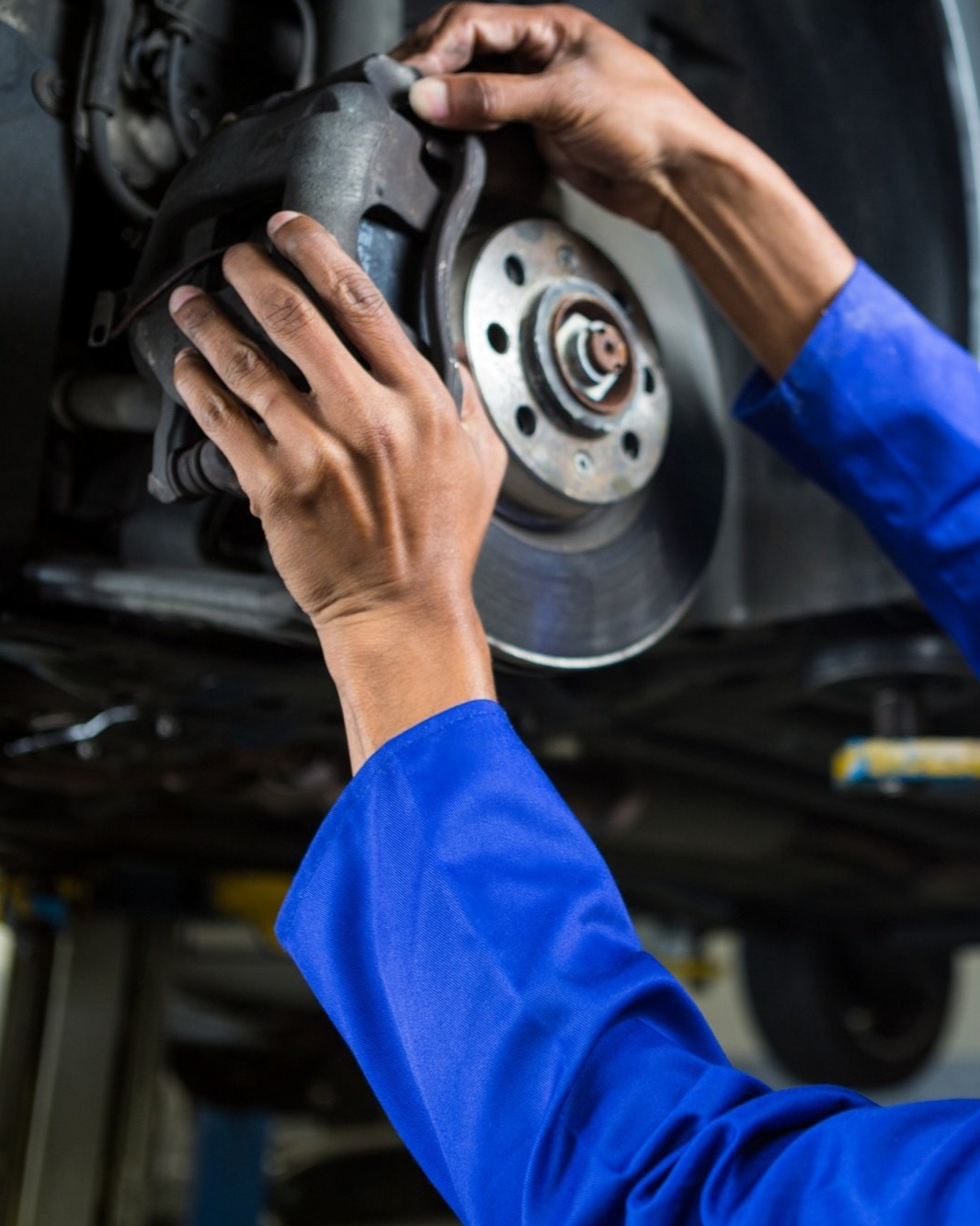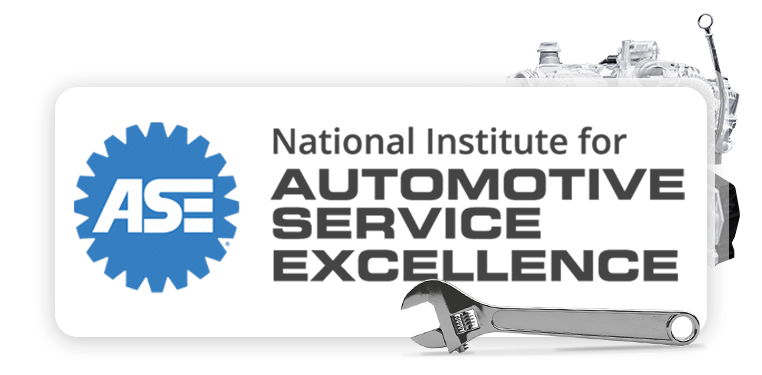Brake Inspection in Maryland Heights, MO
ASE-Certified Repairs Backed by a 24-Month Warranty. Award-Winning Service with Transparency and Trust.
Automotive Services
Brake Inspection in Maryland Heights, MO
At Quality Auto Repair & Auto Sales, we offer comprehensive brake inspections for residents of Maryland Heights, MO. We recommend having your brakes inspected at least twice a year to prevent costly repairs and ensure your vehicle stops properly when you need it most.
Many drivers wait until they hear squealing or grinding, but by then, damage might be extensive. We understand that brake problems can be stressful. Our certified technicians use specialized equipment to thoroughly examine your entire brake system, from pads and rotors to calipers and fluid levels. This comprehensive approach helps us catch issues early and keep you safe on Maryland Heights roads year-round.
Quality Auto Repair
Brake Inspection In Maryland Heights, MO
Our experienced technicians use state-of-the-art equipment to thoroughly examine all components of your braking system. We look for signs of wear and potential issues before they become serious problems.
A typical brake inspection includes:
- Measuring brake pad thickness
- Checking brake fluid levels and condition
- Examining brake rotors for warping or damage
- Testing brake lines for leaks or cracks
- Evaluating the condition of calipers and drums
We recommend having your brakes inspected every 10,000-15,000 miles. However, you should come in sooner if you notice any warning signs like squealing noises, vibrations when braking, or a soft brake pedal.
Our brake inspection process typically takes about 30-45 minutes. We'll provide you with a detailed report of our findings and recommend only the services you truly need.
Our Expertise
Our Brake Inspection Process
At Quality Auto Repair & Auto Sales, we follow a comprehensive inspection process to ensure your brakes are working safely and efficiently. Our expert technicians examine every component of your brake system using specialized tools and years of experience.
Test Drive
Depending on your experience, we may start the inspection with a test drive. This allows us to feel how your vehicle performs in real-world conditions.
During the drive, our technicians listen for unusual sounds like grinding, squealing, or scraping that might indicate worn brake pads or damaged rotors.
We also pay close attention to how your vehicle responds when braking. If we notice pulling to one side, vibrations through the steering wheel, or a spongy brake pedal, these could signal problems requiring immediate attention.
The test drive helps us identify issues you might experience in everyday driving that wouldn't be apparent when the vehicle is stationary. We note any concerns to investigate further during the visual inspection phase.
Visual Inspection
After the test drive, we perform a detailed visual inspection of all brake components. We remove the wheels to get full access to the entire brake system.
We examine the brake pads to measure their remaining thickness. Pads should generally have at least 3-4mm of material left for safe operation. We check both inner and outer pads since they often wear at different rates.
Our technicians inspect the brake rotors for:
- Scoring or grooves
- Signs of overheating
- Warping or thickness variations
- Rust or corrosion
We also examine brake calipers for proper operation, looking for stuck pistons or damaged seals that could cause uneven braking or fluid leaks. The brake lines and hoses are inspected for cracks, leaks, or weakness that could lead to brake failure.
Brake Fluid Check
We check both the quantity and quality of brake fluid during our inspections.
First, we verify the fluid level in the master cylinder reservoir is between the minimum and maximum marks. Low fluid often indicates worn brake pads or a potential leak in the system.
We test the fluid's condition using specialized tools that measure moisture content and contamination levels. Brake fluid naturally absorbs moisture over time, which lowers its boiling point and can cause brake fade during heavy use.
The color of the fluid tells us a lot too. Fresh brake fluid is typically amber-colored and clear. Dark brown or black fluid indicates contamination and needs replacement.
We recommend changing brake fluid every 2 years regardless of mileage to maintain optimal braking performance and prevent internal corrosion of brake components.
Wheel Component Check
The final part of our brake inspection focuses on the wheel components that support the brake system. These parts ensure your brakes work effectively and safely.
We inspect wheel bearings for proper operation and signs of wear. Damaged bearings can cause uneven brake pad wear and compromise vehicle stability during braking.
Our technicians check that all hardware is present and properly torqued, including:
- Caliper mounting bolts
- Lug nuts
- Brake line fittings
- Dust shields
We examine ABS sensors and wiring for damage that might trigger warning lights or affect anti-lock braking performance.
For drum brakes, we remove the drums to inspect brake shoes, wheel cylinders, springs, and self-adjusters. These components wear differently than disc brakes and require specialized knowledge to properly evaluate.
Auto Care
How Often Should You Inspect Your Brakes?
Regular brake inspections are essential for keeping your vehicle safe on the roads of Maryland Heights. We recommend having your brakes inspected at least every 6 months or every 6,000 miles, whichever comes first.
For drivers who frequently travel in stop-and-go traffic or hilly areas around St. Louis County, more frequent inspections may be necessary. These driving conditions put extra strain on your braking system.
You should also get your brakes checked if you notice any warning signs. Don't ignore these red flags:
- Squealing or grinding noises when applying brakes
- Vibration or pulsing in the brake pedal
- Longer stopping distances than usual
- Brake warning light illuminated on your dashboard
- Soft or spongy brake pedal feel
What We Do
Our Other Brake Repair Services in Maryland Heights
Come Visit Us
Our Location
Address: 11457 Schenk Dr, Maryland Heights, MO 63043
Phone Number: (314) 254-2882
Hours: Mon - Fri 7:30 AM - 5:00 PM





